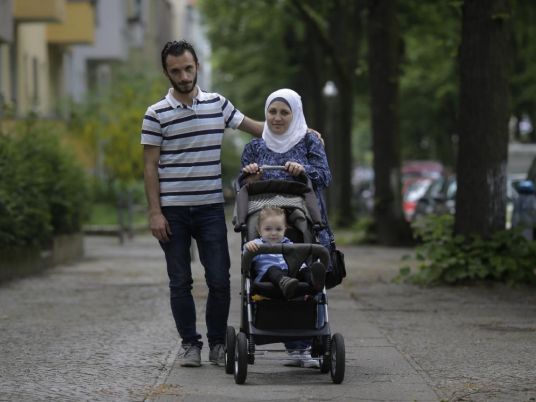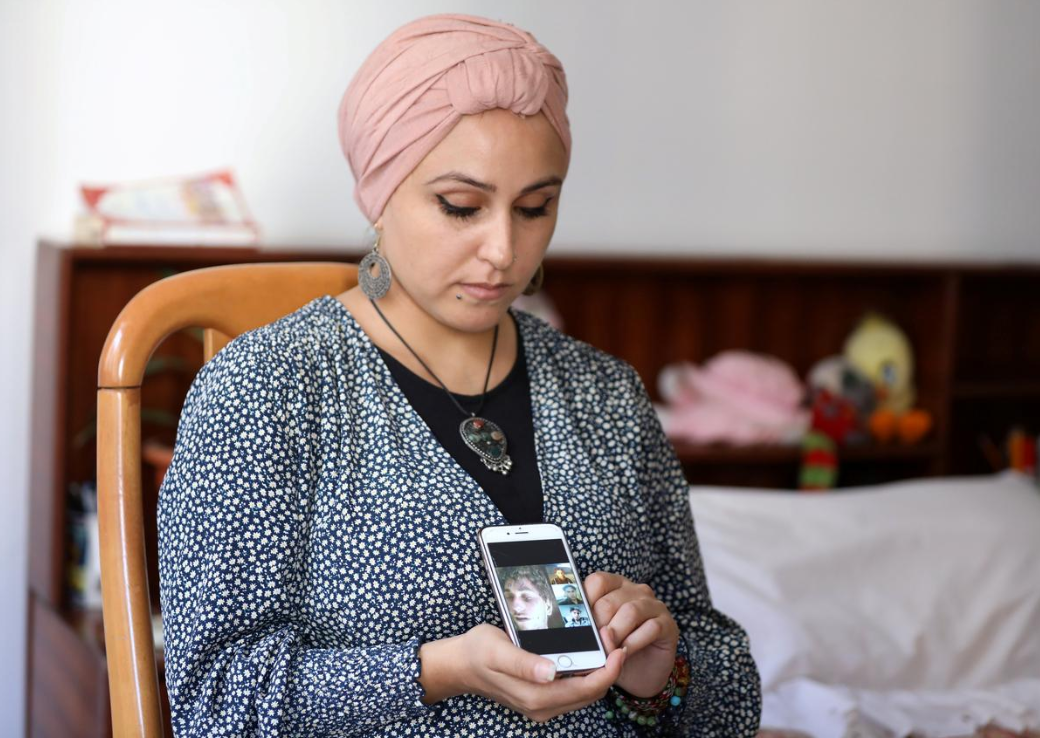
Nine months ago, after the Syrian army razed his neighborhood, Mohammed was desperate to make his way to Germany.
Now he is desperate to go back to Syria because his wife and eight children can't get out. But he fears the only way he can return is the same way he came — illegally.
Mohammed, a farm worker from the outskirts of Damascus, is one of at least hundreds of Syrian refugees who want to go home, often because it's taking too long to bring their families here. But in an unlikely twist, they are finding themselves stuck in Europe.
While Afghan and Iraqi asylum seekers get financial support and organized plane trips to go home, the German government and the International Organization for Migration say they can't send Syrians back to a war zone. There aren't even flights from Germany to Syria because of the brutal civil war there. And neighboring countries that initially took in the bulk of the Syrian refugees have all but closed their doors; Turkey has introduced tough visa requirements, and Lebanon is refusing to take Syrians who left illegally through Turkey.
That leaves little hope for the dozens of Syrians per week who have requested departures since the beginning of this year, according to travel agents and case workers at migrants' return programs.
"I came here only for the future of my children," said Mohammed, who did not want to give his last name because he is afraid the Syrian regime will harm his family. "If they're not here, it makes no sense for me to be here."
A stocky man with tired eyes who looks much older than his 45 years, Mohammed first came to Germany because his children could barely survive on the boiled grass their mother cooked for them. So he paid smugglers to take him across the Mediterranean on a shaky dinghy and trekked up the Balkans, in the hope of quickly finding a job and then bringing his family in.
He got asylum in March. But his wife calls him every day, crying and begging him to come back home. She doesn't have any money to feed their seven daughters, and their only son, 12-year-old Marwan, quit school to sell vegetables on the market.
He bought a plane ticket to Beirut in April, but German security didn't let him on the plane. Two weeks ago, Mohammed tried to board to Athens, but was again stopped. He pulled two crumpled online tickets slowly from the pocket of his oversized brown coat, a worthless reminder of his futile efforts. Covering his face with his hands, he said he will try until he finally finds a way out.
While nobody has exact figures, interviews with government officials, case workers, travel agents and dozens of refugees themselves show that the number of Syrians leaving Germany is growing steadily.
Alaa Hadroos, who runs the Golf Reisen travel agency in Berlin, said between five and 10 people come by his office every day asking him for ways out of Germany. At the beginning of the year, it was more like 20 daily, but now some have realized he can't help them.
"We are getting here a lot of Syrian refugees who want to go home, but it is very, very hard for them to actually get there in any way," he said.
Hadroos said most Syrians now try to book flights from Germany to Athens, then hire traffickers to walk them across the Greek-Turkish border illegally to eventually make it back home.
"It's not a legal route, therefore we cannot offer this as a travel agency," Hadroos added. "We can only book flights for those who have valid travel documents to Athens. But we don't want to have anything to do with the route from Athens to Syria."
Several migrants confirmed to The Associated Press that they planned to use this route. They told the AP they had bought or were going to buy plane tickets to Athens from traffickers in Berlin, even though they had no valid travel documents because German authorities hadn't yet returned their passports. While Berlin and Athens are part of Europe's passport-free Schengen zone, the airlines still need to see valid travel documents.
More than 420,000 Syrian refugees came to Germany last year, and the majority will eventually receive asylum. But the country is so overwhelmed that it is taking months, if not years, to process the requests, let alone the hundreds of thousands of applications for family reunions.




